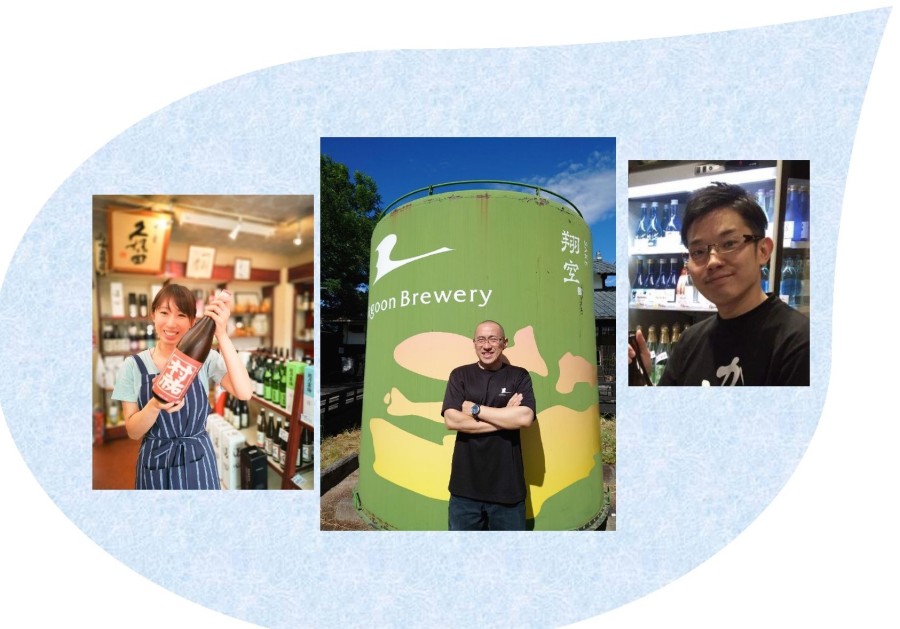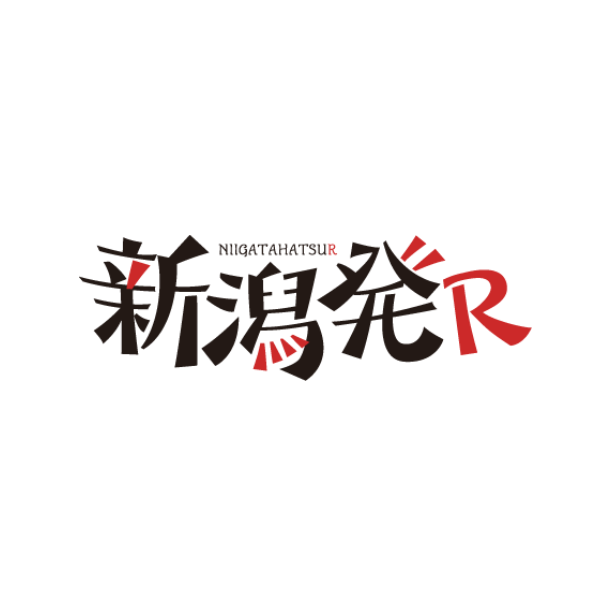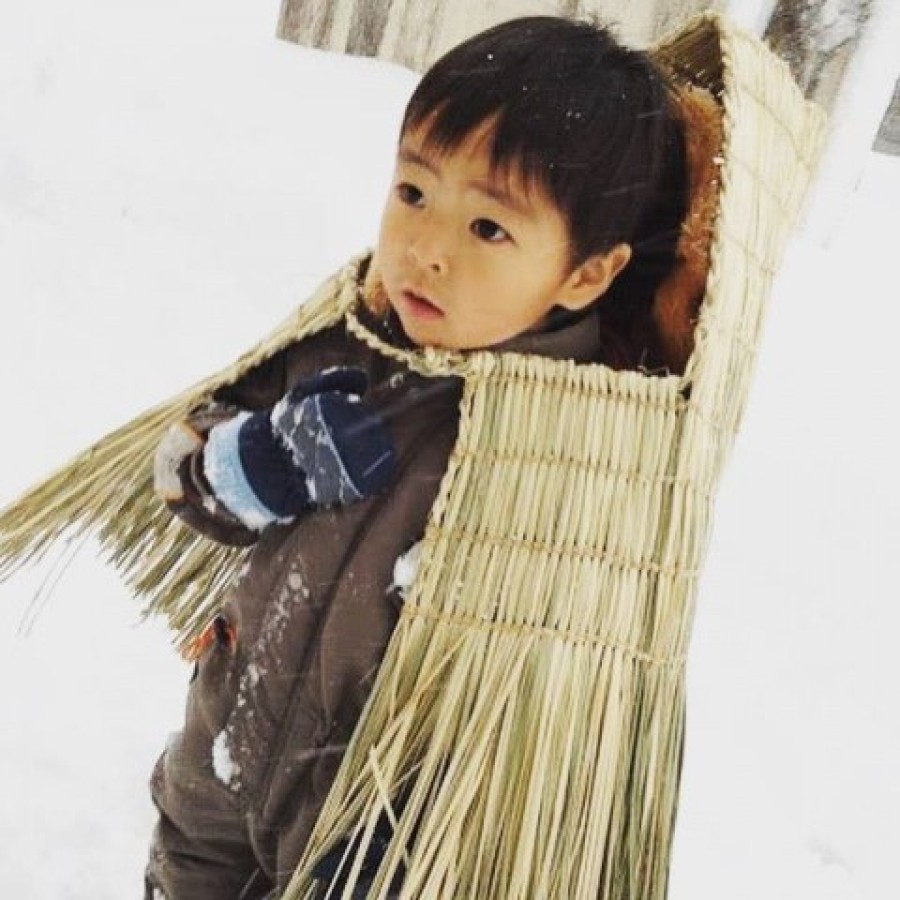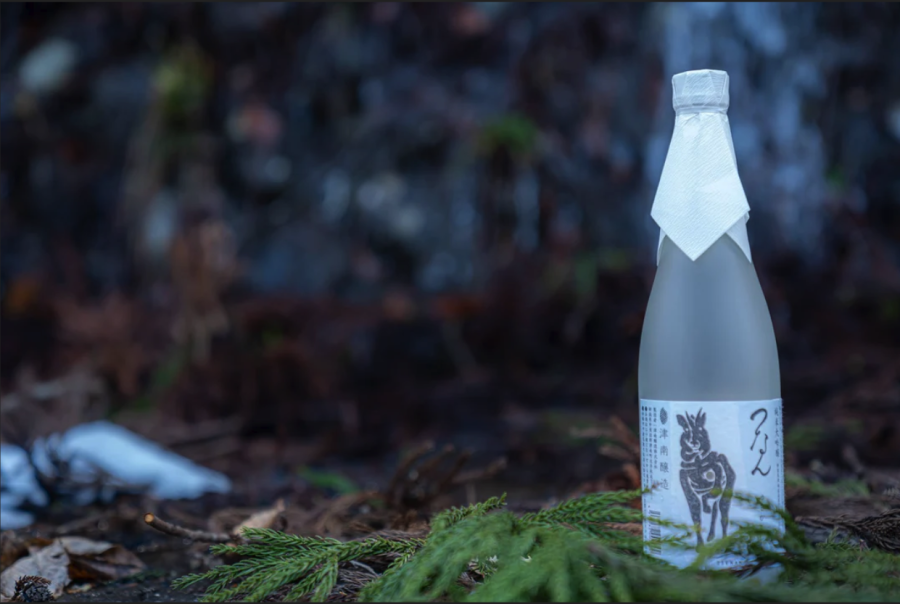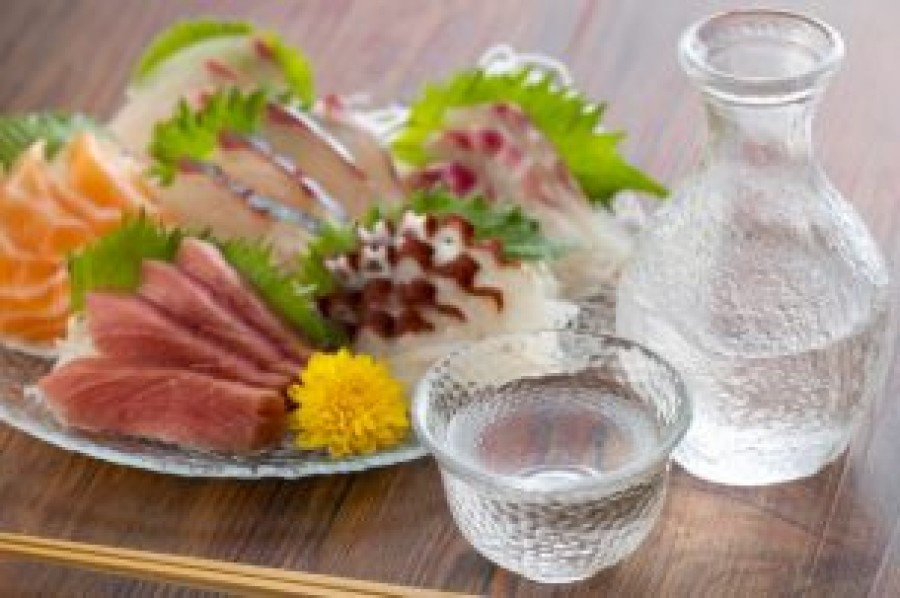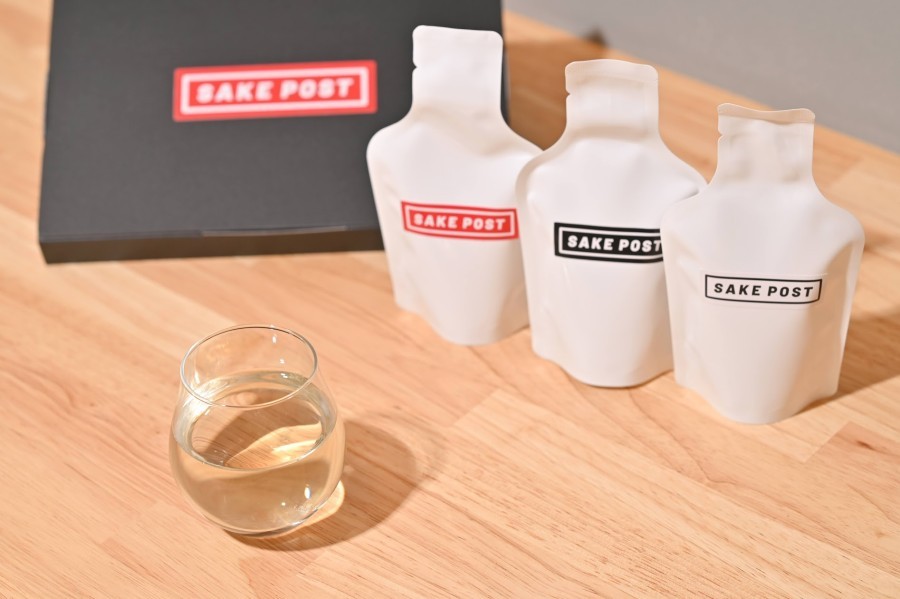Sake Brewer: TAKEDA SAKE BREWERY(Joetsu City) HARUKI TAKEDA
Toji: LAGOON BREWERY(Niigata City) MASAHIRO OZAKI
Liquor store: NAKAZEN SAKE STORE(Niigata City) MIWA NAKAGAWA
The brewer who runs the brewery, the toji (master brewer) and other brewers, and the liquor stores that sell the sake.
A relay essay in which each person writes their thoughts on a single 'subject' and nominates a writer for the next issue. The serialisation of the magazine will continue to be linked on the website.
This issue's 'subject' is 'Onigiri', which was featured in the first issue of NIIGATA HATSU-R's 'The Power of Rice = The Power of Niigata'. We introduce three stories about onigiri, which are now considered to be a world-famous food.
sake brewer
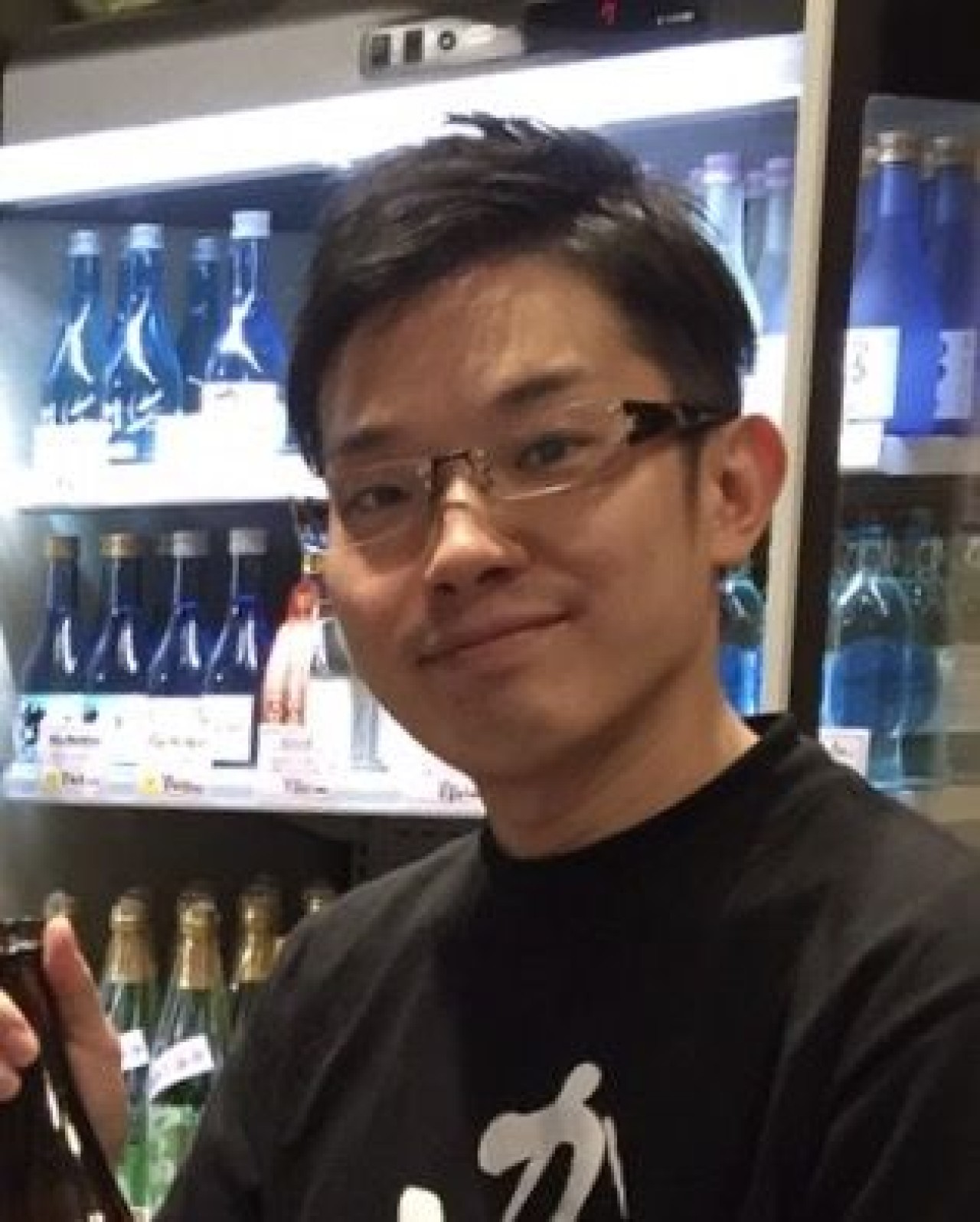
advertisement
Local love fostered through rice cultivation and sake making
TAKEDA SAKE BREWERY(Joetsu City) Managing director HARUKI TAKEDA
The hot season has passed and the rice harvesting season has finally arrived in earnest. When rice is mentioned, the first thing that comes to mind is onigiri. Onigiri are so loved by the Japanese that they can now be called a national dish. With a wide variety of ingredients, mixed rice, okowa and other variations, I have never met anyone who dislikes onigiri. I love onigiri. My children love them too.
As one of our initiatives, we have started a project called 'From rice growing to sake brewing' from 2022. The project involves planting and harvesting rice together with local primary school children, and brewing sake from the resulting rice. The sake is then presented to the children when they reach the age of 20. We started this project because we wanted the children to understand the beauty and difficulty of manufacturing. At the same time, as a local company, we wanted the children to deepen their attachment and love for their hometown, where they were born and raised, and to become adults who can be proud of their hometown in the future as a result of this experience.
Seeing the smiling faces of the children who were covered in mud as they planted the rice, harvested the rice in their own hands and washed the rice with their freezing hands, I am glad I did it. One of the most impressive moments was when we all had lunch together after harvesting the rice. We prepared pork miso soup and asked everyone to prepare their own staple food. It turned out that everyone had onigiri (rice balls) (laughs). Onigiri and pork miso soup are the strongest combination!
(Profile)
HARUKI TAKEDA(たけだ・はるき)
Born 1985 in Joetsu City. TAKEDA SAKE BREWERY10th generation. After graduating from Tokyo University of Agriculture, he trained for a year at a wholesaler in Tokyo before taking over the family business. Started running to stay in shape and completed a 60 km run in a local marathon in 2022. However, he feels burnt out and is wondering whether he will compete next time.
Next appointment!
INOMATABrewing ( ITOIGAWACity) INOMATA知良
the toji (master brewer)
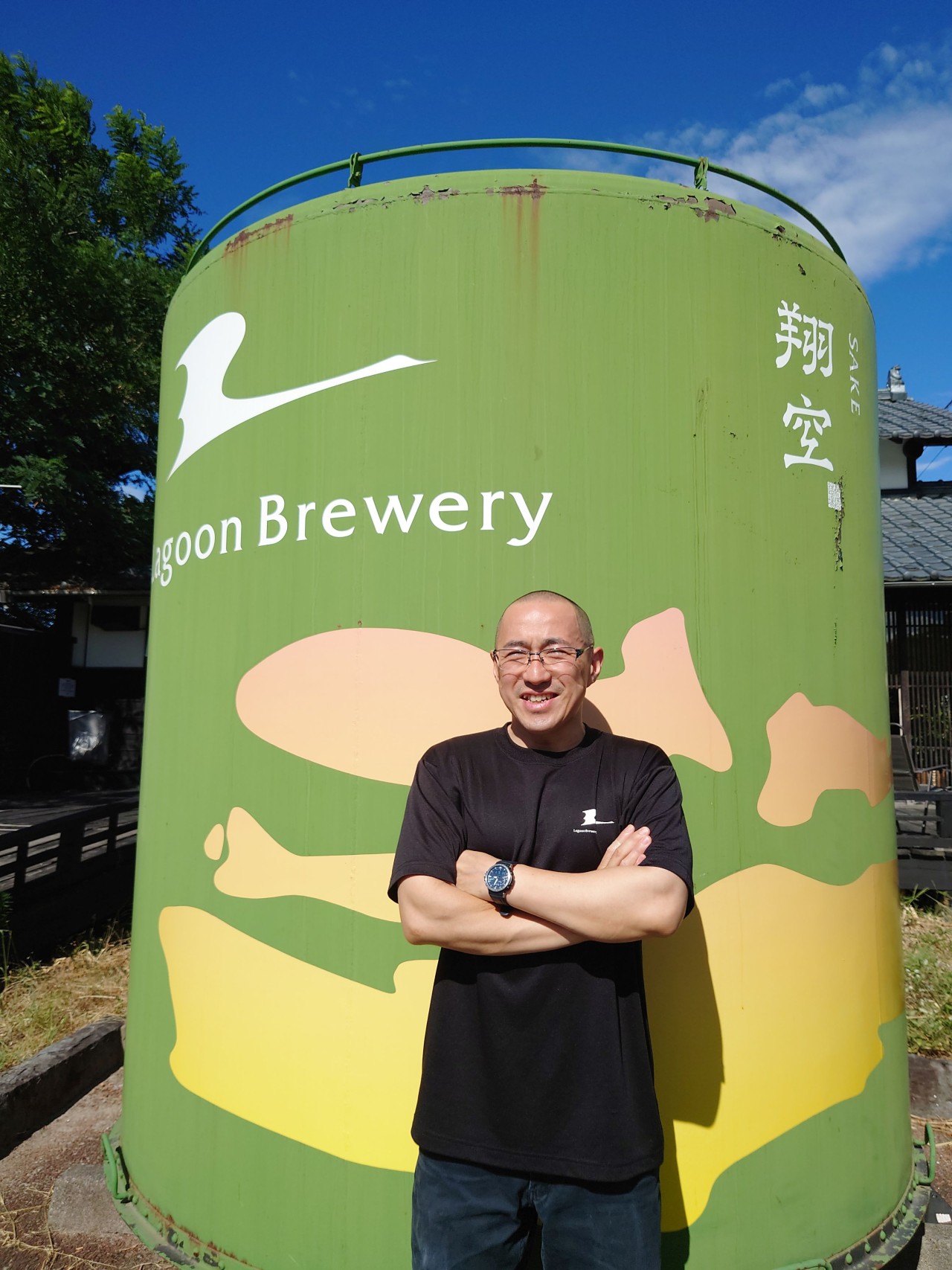
In search of long-loved 'tools'.
LAGOON BREWERY(Niigata City) Chief Technical Officer MASAHIRO OZAKI
When I took on the relay essay this time, I thought about what I could find on the theme of 'onigiri', but to be honest, there wasn't much. Thinking back to the time before I came to Niigata, when I was in junior high school and primary schools, what came to mind was my mother's onigiri. It is not that they were elaborate or that they had a rich repertoire, but that they were just the taste of my mother's cooking. I particularly liked the extremely salty grilled salmon, the slightly burnt grilled cod roe and the pickled plums with the seeds removed and only the pulp.
When I entered junior high school and started club activities, we had Saturday practice days and my mother made lunch boxes for me as we did not have school lunches, but once a month or so, there were times when I would get an irresistible craving for an onigiri. At that time, I was addicted to tuna mayo and cod roe from the convenience store instead of my mother's onigiri.30 years ago, there seemed to be a good variety of onigiri, although not as many as there are now. I still think now that I have to be chosen among them, which is a tough job.
LAGOON BREWERY(LAGOON BREWERY)We often add secondary ingredients such as tomatoes and strawberries to the mash (similar to adding ingredients to rice balls......), ferment and bottle it. We will continue to challenge ourselves with different "ingredients" ....... Among them, there will be some that will remain and some that will only be made once, but I want to carefully make each bottle so that one day I can make sake that people will choose for a long time without getting tired of it, like tuna mayo onigiri.
(Profile)
MASAHIRO OZAKI
Born 1979 in Tokyo. After graduating from high school, he joined Echigo-No-Kura Brewery (later renamed Echigo-Den-Emon) in 1998, and joined LAGOON BREWERY in 2021, where he struggles with seasonal brewing, especially during the hot season.
Next appointment!
Echigo Sake Brewery (Niigata City), Toru Nishijima.
SAKE STORE
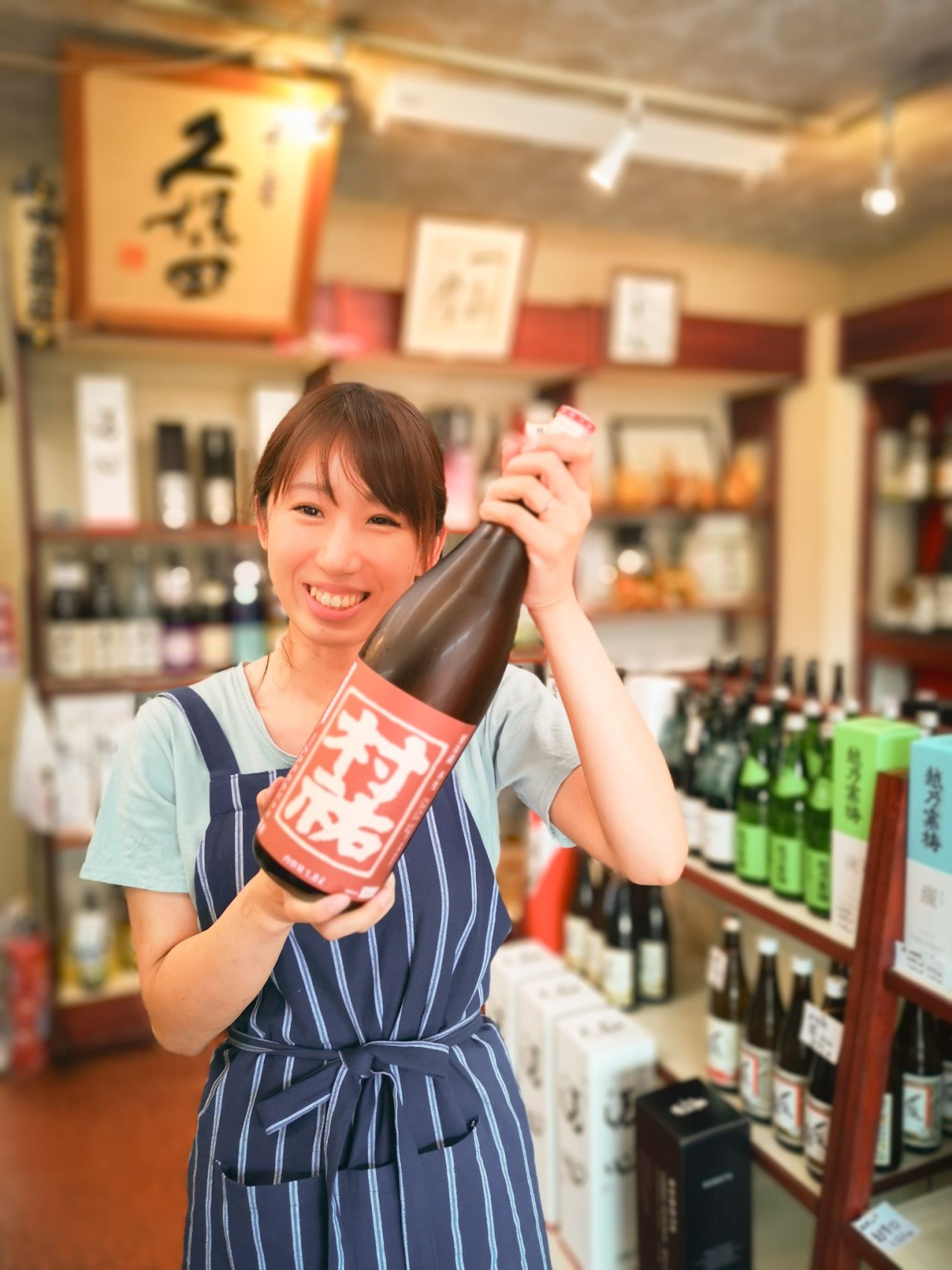
From rice ball shop to new and female shopkeeper
NAKAZEN SAKE STORE(Niigata City) Shopkeeper MIWA NAKAGAWA
After the summer, the new rice season arrives in Niigata, a rice-producing region. Onigiri is a straightforward way to taste the deliciousness of rice. This theme reminded me of my school days.
In my life, now a liquor store, my first part-time job was at an omusubi shop. The work of making onigiri, starting from imitation, left me with vivid memories of enduring the heat, as the skin of my hands was still very thin at the time. I was a university student and lived in Saitama. At a small omusubi shop in front of the station, I made large omusubi (about 180g) while talking to a wide range of customers, including office workers after work, people on their way home from shopping, grandparents, and hungry junior and senior high school students.
Time has passed in the blink of an eye and I am now in my mid-thirties and about to take over my parents' shop in my hometown of Niigata to become a third-generation liquor shop woman owner. Just like the omusubiya, the customers who come to the liquor shop range from people in their 20s to senior citizens in their late 80s, and I enjoy the various experiences I have every day, such as being asked for advice on sake for the first time in my life, or being given knowledge by someone who has a gold master.
Looking back, I get the sense that omusubi shops and liquor stores are the same, and that they are getting closer to being places like a meeting place where you can hear and talk about various stories, meet people, know them, laugh and have fun. I feel that sake and omusubi (rice balls), which are made from the same rice, are the things that bring people together and make life more colourful. In order to become a sake shop that makes sake more accessible, more enjoyable and more interesting, the new owner of the shop will continue to devote herself to her work.
(Profile)
MIWA NAKAGAWA(なかがわ・みわ)
Born 1989 in Niigata City, Japan. NAKAZEN SAKE STORENext-generation third generation and female owner of a liquor shop in the city of Niigata, Japan. She has been a liquor shop owner for three years. Formerly an occupational therapist, her hobbies include visiting pubs, fishing, farming and DIY, and her daily routine is to cut up the fish she catches, taste it with sake and post it on SNS.
Next appointment!
Sake no Yoshiya (Niigata City) KUMIKO KANDA
advertisement


